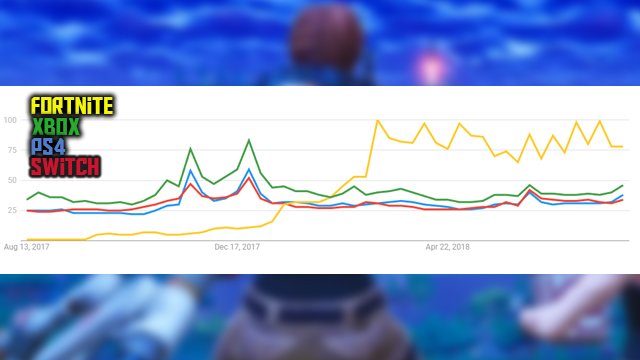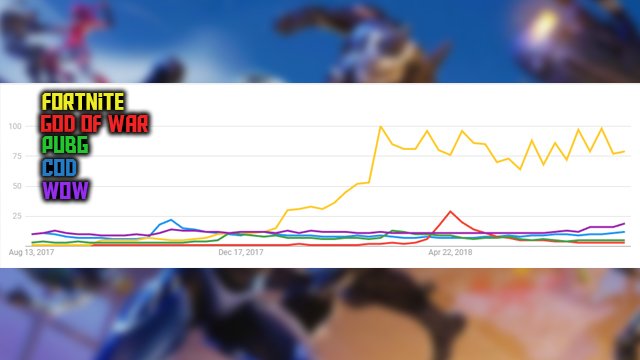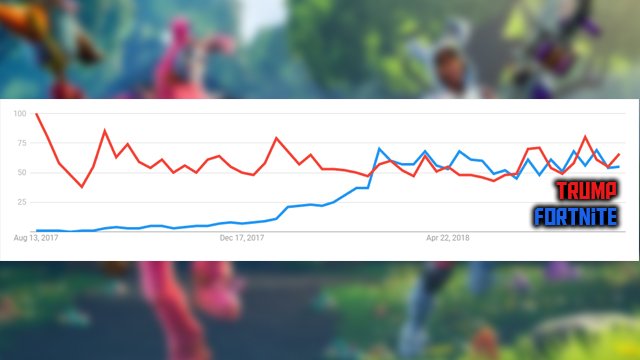No game has experienced a level of success quite like Fortnite. Sure, there have been plenty of other popular games, but none have skyrocketed from out of nowhere in the same way that Epic Games’ blockbuster battle royale has. On top of its staggeringly large audience, Fortnite has also swiftly taken over most gaming websites. Browsing through various homepages reveals a slew of Fortnite posts, drowning out content surrounding triple-A releases in the process.
Fortnite‘s domination of news coverage has been met with criticisms from readers. The audience for it clearly exists, but those who do not count themselves among the game’s fans suggest that the reasoning for its oversaturation is due to gaming outlets and their tendency to prioritize the battle royale game over every other release. If you’re not into Fortnite, then the sheer volume of coverage surrounding the game is understandably insufferable. However, it’s difficult to argue against the logic behind prioritizing Fortnite over everything else.
Online journalism is predominantly search-focused, so most of a website’s output is dictated by how well it will perform on Google. We live in an SEO world, where many outlets live or die based on their implementation of Search Engine Optimization. As a result, Google searches for games form the basis of many news posts, guides, and features. However, far from gaming sites creating demand by way of reporting on Fortnite far more than any other game, it’s clear from Google’s search stats that the demand is so overwhelming compared to everything else that choosing to avoid it would be highly questionable.
Fortnite‘s Domination Explained
Below is a US Google Trends comparison for the past 12 months. Typically, console searches are far higher than individual game searches, given the broader audiences that they appeal to. However, in Fortnite‘s case, searches for the game routinely double those for the PS4, Xbox One, Nintendo Switch. Starting from February 2018, a month that saw it surpass rival PUBG in monthly sales for the first time with $126 million, searches for Fortnite experienced a meteoric rise:

A single game managing to outdo searches for consoles is hugely impressive, so Fortnite inevitably leaves its competing games in the shade, too. Even blockbuster franchises and best-selling releases have been unable to topple its traffic, with it having trounced searches for other every other game since January 2018. Even a new Call of Duty, the enduringly popular World of Warcraft, the best-selling God of War, and heated rival PUBG couldn’t come anywhere near it:

But Fortnite isn’t just the biggest search topic in gaming. It has also frequently surpassed searches for inarguably the most talked-about man in the US, Donald Trump. Searches for Trump still often rank higher than Fortnite, but since the game reached its peak in early 2018, it has been going toe-to-toe with the president. We’re sure these figures are worthy of an angry tweet or two:

So how has Epic Games managed to achieve this? How has Fortnite, a game that was once seen as little more than a PUBG rip-off, managed to become a more popular search topic than the US president? While there’s a lot to be said for the quality of the game itself, the real reason behind its continued success is largely due to its routine updates.
Why Fortnite Can’t Be Beaten (at Least for Now)
Epic showcases a flexibility with its patches that you don’t get with most other games, where downloadable updates tend to take place every few weeks. The studio has cleverly opted to keep the Fortnite Battle Royale mode in beta, meaning that it doesn’t need to go through the time-consuming and often expensive certification process required for rolling out updates on consoles. Whereas a full, finished game such as Call of Duty Black Ops 4 would need to go through some bureaucracy with the PS4 to get its updates published, Fortnite remaining in beta means that it can publish these updates at will. This allows them to consistently respond to community feedback, fill the game with new feedback, and arrange unique events that make the game feel like its own ever-evolving world.

The impact this has on search traffic for Fortnite is monumental. Even with megahits such as Grand Theft Auto V and its GTA Online mode, the space between updates means that search traffic inevitably experienced its lows and highs. While players were still flocking to the game in their droves, there were periods between new batches of content where they wouldn’t feel compelled to search for it on Google. This led to breaks in coverage, with outlets moving towards other popular releases before shifting back to GTA Online when it received a new patch or expansion.
The same cannot be said for Fortnite. With Epic releasing update after update, piling game-changing events on top of new skin releases, there’s always something new for players to search. This makes coverage of the game cyclical, with players hopping online to check for the latest item shop update, outlets clambering over one another to provide them with the details, and then the strength of the game’s presence on Google serving to encourage more coverage in the process.
All of this contributes to making Fortnite unstoppable. Though plenty more games may compete with it in terms of quality, Epic’s ability to bend the rules with its beta status and keep on top of the needs of its community make the game a force to be reckoned with. We’ll be seeing plenty more battle royale games pop up as a result of its success, though it’s doubtful they’ll be able to exhibit the same amount of flexibility as Epic. Still, maybe Red Dead Redemption 2‘s rumored battle royale mode will throw in some ATKs/Flaming Hoops and finally bring an end to Fortnite‘s indomitable reign.







